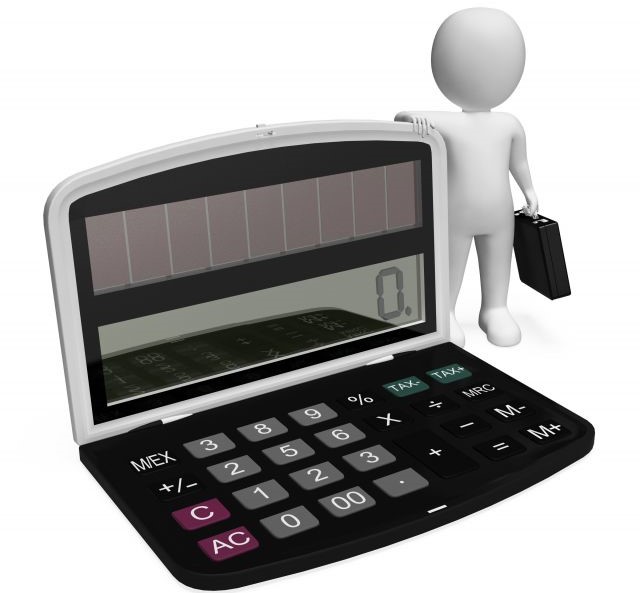The modern business world is a very exciting place, with more opportunities than ever before. But setting out on your own won’t be easy, so the following accounting tips — from hiring a sole trader accountant to small business tax returns — will help you along the road to success.
An abundance of creative-minded individuals leave university every year, with the ability and skill-sets to take their industry by storm. Unfortunately, there aren’t enough company jobs out there for everyone to do the job they love or have trained for. This leads to a significant number of freelancers setting out on their own and making a serious impact on today’s business world.
While this is an exciting prospect, it requires a lot of work and investment. You will have to plan ahead regarding the small details and invest in technology that will benefit your business. As a mobile or home-based business owner, you may need a card reader to process payments on the go and a mobile scanner to scan documents when you’re out meeting with clients.
You’ll need to adopt more skills and knowledge to make you productive as a business owner, many of which are financial in nature. Keep these five financial tips in mind as you build the foundations of your freelance career, and you’ll be in a strong position for success.
1. Separate Your Bank Accounts
As a freelancer, you are now technically a sole trader and should act accordingly. One of the first things you should have done (or should do, right now) is open a separate bank account for business purposes. Doing so is an organisational necessity for day-to-day accounting — and an absolute godsend if you have an imminent small business tax return.
Speaking of taxes, being a freelancer requires you to pay out for the running costs of your business (laptop, computer software, WiFi, office fees, etc.). These can be claimed as business expenses, which will add up to a taxable profit to be deducted from your tax bill.
2. Stay Organised
The majority of your time as a newbie freelancer will be spent emailing potential clients and marketing your services, with little to no financial activity right away. With that said, when things do begin to pick up — and it will, if you have faith and work hard — you’ll have consistent ingoings and outgoings that need to be monitored and organised efficiently.
Invoicing will become a vital part of your new career. Making sure you keep track of your invoices, keeping an eye on upcoming payments and following up with clients for payment will all be essential to organise your finances. A sole trader accountant and accounting software are brilliant tools for organisation, both of which are spoken about in more depth below.
3. Prepare for Small Business Tax Returns
As the employee of a company, the annual tax return is relatively simple thanks to the P60 form you’re given. As a freelancer or small business owner, though, the time leading up to the tax return deadline and the process itself will be very stressful without the right preparation. This is where the previous tip of “stay organised” will be essential. Muddled accounts will cause you no end of bother when the time comes to file your tax return.
Preparing for a small business tax return is important for lots of reasons, but one of the most important is that if you don’t, it will cost you money. Fines for incorrectly filled-in tax forms or late fees for missing the deadline date will affect your ability to do business if you’re working on a tight budget.
4. Invest in Accounting Services
In the early days of a freelance career, you’ll be working on a tight budget, meaning you’ll be wary of expenses that aren’t deemed to be essential. While the phrase “you have to spend money to make money” is thrown around way too much, some expenses will prove to be worth their weight in gold. Hiring a sole trader accountant, for example.
Accounting for freelancers is daunting if you have minimal knowledge of finances. A sole trader accountant will have years of experience working small businesses, encountering many of the same issues you’ll face as a freelancer. This means that they’ll be your best bet for day-to-day organisation of accounts — and the ultimate ally when the time comes to tackle small business tax returns.
5. Use Accounting Software
Organising accounts, creating and sending invoices, and preparing your bank transactions for small business tax returns can all be handled with accounting software. Not only does this make everyday finances a lot simpler, but it also eliminates many of the ways you could make errors (especially if maths isn’t your strong suit); errors that could cost you money.
That being said, accounting software doesn’t make the benefits of an actual accountant obsolete. An ideal way to get the best of both worlds is to use the two in tandem. So in this instance, accounting software would be used to organise all of the vital financial information and transactions, which you could then send to your sole trader accountant to work their magic.
Accounting for freelancers is one of the most vital aspects of your business. Organisation and efficiency will be crucial and the tips above will put you on the right track to make sure you achieve it. From the basics of separating your accounts and staying organised, to attaining the services of a sole trader accountant, all of the above are worth taking on board.
Find a Home-Based Business to Start-Up >>> Hundreds of Business Listings.















































